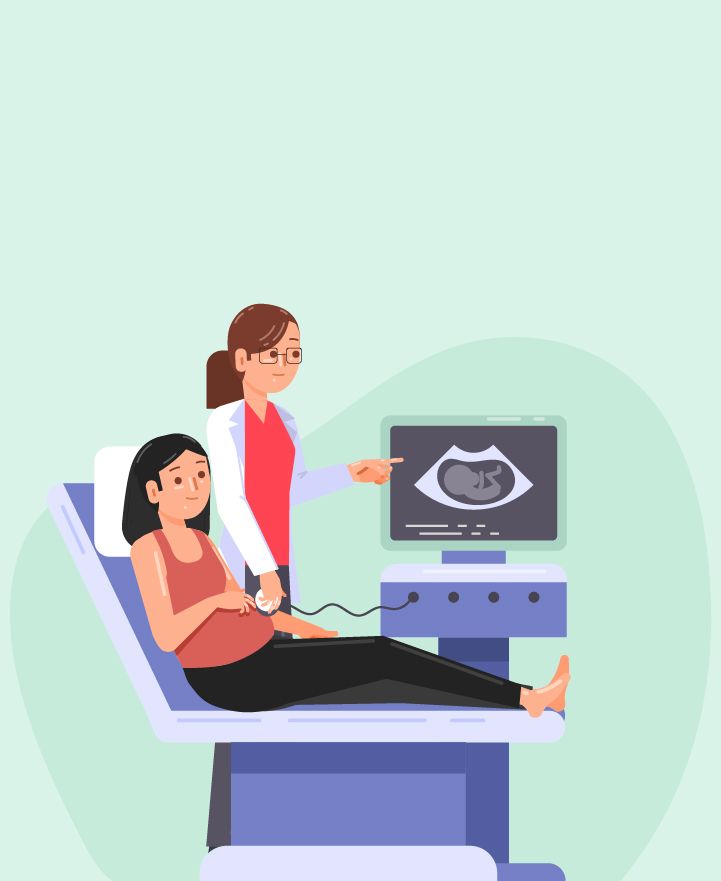

How Soon Can You Get Pregnant After a Miscarriage?
Pregnancy after miscarriage can be stressful and you might have many questions in your mind such as when to try again, when is the best time, what are the odds of having a miscarriage again etc. Take a look at this article to know how soon can you get pregnancy after a miscarriage.
When Can You Try Again?
The timing of when a person can get pregnant after a miscarriage varies from individual to individual. It also depends on various factors, including the person’s overall health, age, menstrual cycle regularity, and the circumstances surrounding the miscarriage.
Generally, it is possible to become pregnant again as soon as your ovulation resumes, which is typically within 2 to 4 weeks after a miscarriage. However, it’s essential to wait until you are emotionally and physically prepared before you try to conceive again.
Some doctors may recommend waiting for one or more menstrual cycles to pass before attempting to conceive again as this not only allows your hormonal levels to return to normal, but it even gives time for the body to heal. In some cases, the doctor may even advice waiting longer, especially if there were complications during the miscarriage or if there are any underlying health concerns.
It’s important to discuss your concerns with the doctor so that they can provide personalized guidance and recommendations based on your medical history and current situation. They can also offer support and resources to help you navigate this challenging time.
What are the Odds of Another Miscarriage?
The likelihood of experiencing another miscarriage after having one previous miscarriage is generally low. According to research, the risk of a subsequent miscarriage after one miscarriage is around 20% to 25%. This number can vary depending on individual circumstances. If you have concerns about the risk of another miscarriage, it’s essential to discuss them with your healthcare provider.
If you have had 2 or more miscarriages in a row, your doctor might suggest tests such as blood tests and chromosomal tests. Other tests may be suggested such as an ultrasound or an MRI to help find conditions that affect the uterus.
Conclusion
After a miscarriage, waiting until after the first menstrual cycle for physical recovery is recommended, while emphasising emotional readiness ensures a healthier and more resilient pregnancy journey. Balancing both aspects is key for a successful conception.
One of the important components of our overall wellness is also being financially secured. Healthcare emergencies can happen any time, but a good health insurance policy can protect you from such uncertain situations. To know more about Wellness and other health related tips, visit the wellness corner.
Source: verywellfamily.com, mayoclinic.org
Disclaimer: This blog provides general information and discussions about health and related subjects. The information and other content provided in this blog, website or in any linked materials are not intended and should not be considered, or used as a substitute for, medical advice, diagnosis or treatment. Kindly contact your Doctor before starting a new medicine or health regime.
Related Articles
Whats the Best Age To Get Pregnant
The Best Ways to Prepare Your Body for Pregnancy
Pregnancy Planning - Healthy Weight Is Important
Do Yeast Infections Impact Pregnancy
Pregnancy after 35 - Risks & Tips for Healthy Pregnancy
Published on April 03, 2024














 Health Insurance
Health Insurance  Travel Insurance
Travel Insurance  Car Insurance
Car Insurance  Cyber Insurance
Cyber Insurance  Critical Illness Insurance
Critical Illness Insurance
 Pet Insurance
Pet Insurance
 Bike/Two Wheeler Insurance
Bike/Two Wheeler Insurance  Home Insurance
Home Insurance  Third Party Vehicle Ins.
Third Party Vehicle Ins.  Tractor Insurance
Tractor Insurance  Goods Carrying Vehicle Ins.
Goods Carrying Vehicle Ins.  Passenger Carrying Vehicle Ins.
Passenger Carrying Vehicle Ins.  Compulsory Personal Accident Insurance
Compulsory Personal Accident Insurance  Travel Insurance
Travel Insurance  Rural
Rural